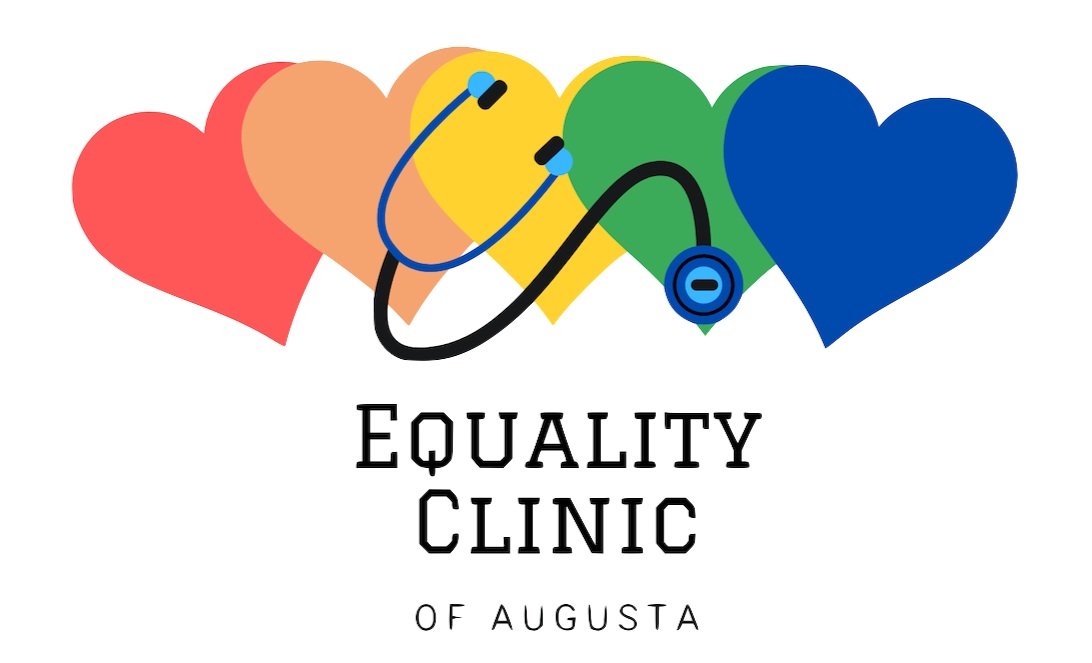Research
At the Equality Clinic, we believe that research plays a crucial role in uncovering the unique healthcare needs of the LGBTQ community and fostering the expansion of compassionate, inclusive care across healthcare institutions and providers. Your participation in surveys or studies can make a significant difference—together, we can create better care for all. Explore some of our ongoing and completed research initiatives below, and thank your participation!
Current Studies Recruiting Participants
For volunteers: We are conducting a longitudinal survey to explore how experiences in the clinic can shape attitudes toward LGBTQ care and deepen understanding of the social factors that impact health. If you haven’t had a chance to participate yet, we’d love to hear from you! Simply let one of our friendly coordinators know during your next visit—we truly value your perspective.
For patients: We are hoping to have 2 new survey projects out within the New Year! More to come soon.
Past/Published Research
LGBTQ Focused Studies
1. House, A. S.,Van Horn, E., Coppeans, C., & Stepleman, L. (2011). Interpersonal trauma and discriminatory events as predictors of suicidal and nonsuicidal self-injury in gay, lesbian, bisexual and transgender persons. Traumatology. 17(2), 75-85.
2. Stepleman, L.M., Penwell-Waines, L., and Valvano, A. (2015). Integrated care psychologists and their role in patient transition from medical to psychiatric specialty care settings: A conceptual model. Health Psychology and Behavioral Medicine: An Open Access Journal, 3(1), 154-168.
3. Stepleman, L.M., Lopez, E.J., Rawlins, W., & Heboyan, V. (2017). Smoking out health disparities in sexual and gender minorities: Lessons from the National Adult Tobacco Survey. Open Journal of Social Sciences, 5, 1-13. doi:10.4236/jss.2017.58001
4. Drescher, C. F., Lopez, E. J., Griffin, J., Toomey, T., Eldridge, E. D., & Stepleman, L. M. (2018). Mental Health Correlates of Cigarette Use in LGBT Individuals in the Southeastern United States. Under review at Journal of Substance Use and Misuse. doi: 10.1080/10826084.2017.1418087
5. Stepleman, L.M., Yohannan, J., Scott, S.M., Titus, L., Walker, J., Lopez, E. L., Wooten-Smith, L., Rossi, A., Toomey, T., Eldrige, E.D. (2018). Health Needs and Experiences of a LGBT Population in Georgia and South Carolina. Journal of Homosexuality. doi.org/10.1080/00918369.2018.1490573
6. Drescher, C. F., Eldridge, E.D., Wood, E., Rossi, A. L., & Stepleman, L. M. (2018) "Implementing an LGBTQ Training for Teen Pregnancy Prevention Facilitators," Georgia Educational Researcher: Vol. 15 : Iss. 1 , Article 4. DOI: 10.20429/ger.2018.15104
7. Griffin, J.A., Drescher, C.F., Eldridge, E.D., Rossi, A., Loew, M.M., & Stepleman, L.M. (2018). Predictors of anxiety among sexual minority individuals in the Southern US.Journal of Orthopsychiatry. DOI:10.1037/ort0000363
LGBTQ Community and the Healthcare System
1. West, L. M., Stepleman, L. M., Wilson, C. K., Campbell, J. Villarosa, M., Bodie, B., & Decker. M. (2012). It’s supposed to be personal: Personal and educational factors associated with sexual health attitudes, knowledge, comfort and skill in health professions students. American Journal of Sexuality Education, 7 (4), 329-354.
2. Penwell-Waines, L.Wilson, C. K., Macapagal, K. R., Valvano, A. K., Waller, J. L., West, L. M., & Stepleman, L. M. (2014). Student perspectives on sexual health: implications for interprofessional education. Journal of Interprofessional Care, (0), 1-6.
3. Valvano, A., West, L., Wilson, C., Macapagal, K., Penwell-Waines, Waller, J., & Stepleman, L. (2014). Health Professions Students' Perceptions of Sexuality in Patients with Physical Disability. Sex and Disability, 32 (3), 413-427.
4. Macapagal, K., Valvano, A., Penwell-Waines, L., Wilson, C., West, L., & Stepleman, L. (2014). Attitudes toward HIV/AIDS patient care among health professions students in the Southeastern United States: Implications for interprofessional education. Health and Interprofessional Practice. 28 (4), 317-322.
5.Wilson, C. K., West, L. M., Stepleman, L. M. Villarosa, M., Bodie, B., Decker, M., Waller, J. (2014). Attitudes towards LGBT patients among students in the health professions: influence of demographics and discipline. LGBT Health. 1(3), 204-211.
6. Bidell, M., & Stepleman, L. M. (2017). An interdisciplinary approach to lesbian, gay, bisexual, and transgender clinical competence, professional training, and ethical care: Introduction to the special issue. Journal of Homosexuality, 64(10). doi.org/10.1080/00918369.2017.1321360
HIV Research
1. Stepleman, L. M., Hann, G., Santos, M. & House, A. S. (2006). Reaching Underserved HIV-Positive Individuals Using Patient-Centered Psychological Consultation. Professional Psychology: Research & Practice. 37(1), Feb 2006, 75-82.
2. Bottanari, K. A., & Stepleman, L. M. (2009). Factors associated with psychotherapy longevity among HIV positive patients. AIDS Patient Care and STDs, 23 (2), 1-9.
3. Bottanari, K. A., & Stepleman, L. M. (2010). Improving access to mental health services via a clinic-wide mental health intervention in a Southeastern US infectious disease clinic. AIDS Care, 22, 133-136.
4. Rose, R. C., House, A. S., & Stepleman, L. M. (2010). Intimate partner violence and its effects on the health of African American HIV-positive women. Psychological Trauma: Theory, Research, Practice and Policy, 2, 311-317.
5.Brown, J.L., Stepleman, L.M., & Bottonari, K.A. (2012). Medical outcomes of HIV-infected individuals two years after initiating psychiatric services. Journal of HIV/AIDS & Social Services, 11 (1), 23-41. doi: 10.1080/15381501.2012.652540.
6. Lopez, E., Toomey, T., Lewis, K., Khazvand, S., Floyd, R. M., Arnold, K. R, & Stepleman, L. M. (2017). The changing face of treatment: Mental health concerns and integrated care in an HIV clinic. Journal of Health Care for the Poor and Underserved, 28(1), 430-445.
7. Stepleman, L. M., Trezza, G., Santos, M., & Silberbogen, A. K. (2008). The integration of HIV training into internship curricula: An exploration and comparison of two models. Training and Education in Professional Psychology, 2 (1), 35-41
